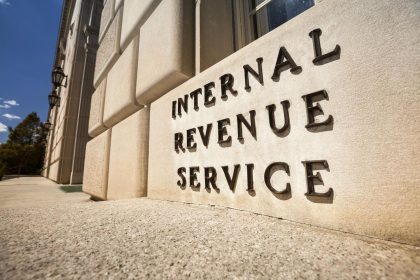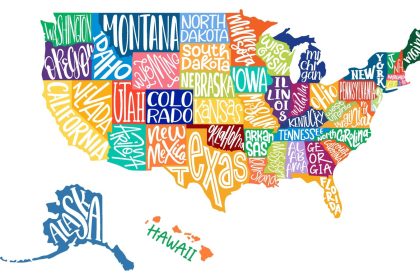This is a published version of our weekly Forbes Tax Breaks newsletter. You can sign-up to get Tax Breaks in your inbox here.
Memorial Day marks the official start of summer. It’s a great time to eat ice cream and hotdogs, watch a baseball game or two (go Phils!), and plan a stop at the beach or pool. But don’t forget that there’s another reason for the day—honoring those who died in service of our country.
While there are disputes about the origin of Memorial Day, the most widely accepted is that General John Alexander Logan was given the idea by his wife, Mary, who was inspired by the Southern practice of decorating military graves by war widows.
Memorial Day became a federal holiday for work purposes in 1888, but it wasn’t observed uniformly until 1971. Today, by statute, it is always the last Monday in May. (If you’re curious, a list of legal public holidays can be found here.)
In December 2000, President Clinton signed The National Moment of Remembrance Act, which encourages Americans to observe a moment of silence at 3 p.m., local time, on Memorial Day to remember and honor those who have died in service to the nation. Many organizations join in, including Major League Baseball, which will pause all games for a moment of silence, a tradition they’ve followed for years.
If you’re lucky enough to have an extra long weekend, it’s an excellent time to catch up on some reading. Here’s some of what you may have missed this week:
In news that you may have to read twice because it sounds so wild, the Department of Justice (DOJ) has unsealed several court documents charging defendants in a scheme tied to North Korea. The feds allege that North Korea sent thousands of skilled IT workers around the world with stolen or borrowed identities to infiltrate U.S. companies’ networks and raise money to contribute to the North Korean weapons program in violation of U.S. and U.N. sanctions.
As part of the scheme, private individuals, including a U.S. citizen, helped overseas IT workers steal the identities of U.S. nationals to apply for remote jobs. Once they had obtained jobs in the U.S.—sometimes through the use of staffing companies—they were able to access the internal systems of U.S. companies, including a top-five major television network, a car manufacturer, and a luxury retail store—all of which were Fortune 500 companies. The thieves stole data and money, and were also paid millions of dollars for their work and falsely reported that information to the IRS.
Some defendants are still at large—there is a $5 million reward for their capture. The story is quite a read and how I learned about “laptop farms.” (☆) (Spoiler alert: They’re not bucolic spaces used to grow laptops.)
In other international news, some members of the Group of Twenty (G20) have proposed a global billionaires’ tax—and the U.S. raised eyebrows when it initially indicated that it would not support the idea. (☆) The proposal, introduced by Brazil, would require the world’s 3,000 billionaires to pay a 2% tax on their wealth each year, raising $250 billion to fight poverty and economic inequality.
(The 3,000 billionaire tag appears to be something of a round number, as Forbes identified 2,781 billionaires in 2024, 141 more than last year and 26 more than the record set in 2021. (☆))
After I published my article, Secretary Yellen clarified her remarks, saying, in part, “So it’s not that I have any objection to imposing a reasonable level of taxation and certainly a minimum level of taxation on very high income individuals in the United States. Rather, it’s that I’m not supportive of an international negotiation that would involve all countries agreeing to do it, and to redistribute the proceeds among countries potentially based on climate and damage suffered from climate.”
The U.S. also made international news for the White House’s move to slap $18 billion in new tariffs on Chinese electric vehicles and solar panels. Those include a 100% levy on electric vehicles, a 25% tariff on EV and non-EV batteries, certain battery materials, steel, and aluminum, a 50% tariff on solar cells and semiconductors, and a 25% tariff on surgical gloves and face masks.
Not only will prices likely rise for taxed imported goods, but absent foreign competition, domestic competitors will also increase prices. Biden administration officials, like their predecessors, insist tariffs have little impact on buyers, but most economic research disagrees.
Electric vehicles—and those related tax credits—continued to entice consumers. But before you sign onto a new car, consider a used one. Since 2023, qualified used electric vehicles have been eligible for a federal tax credit for up to 30% of the sale price or $4,000, whichever is lower. This is significantly less than the $7,500 maximum credit for a new EV—but with the old adage of a new car losing 20% of its value when it’s driven off the lot, it presents an opportunity to get a bargain on a low-mileage used vehicle.
Of course, cheaper isn’t always better. Fast fashion—mass production of fashion designs at a low cost brought to you by companies like Shein and Temu—is driving conversations about not only the environmental impact of so much commerce but the ability of some of these companies to bypass import duties and taxes. Last year, a bipartisan group of lawmakers introduced a bill that would prevent goods from China and 17 other countries from using an exemption to avoid paying taxes on low-value shipments. Another bill introduced in March of this year would similarly prevent China and Russia from using the de minimis exemption—some lawmakers think the move could raise $15 billion annually.
U.S. businesses have worries closer to home. The latest IRS data shows that it had 1,057,000 unprocessed Forms 941-X as of December 9, 2023—most of them, Employee Retention Credit (ERC) refund claims. IRS Commissioner Danny Werfel says that number is certainly understated since the IRS still received an average of about 20,000 ERC refund claims per week as of mid-April. Werfel has recently stated that he “estimates that 19 out of every 20 claims is suspect”—if true, that’s an amazing number. The IRS has already “processed about 3.6 million ERC claims worth approximately $230 billion to businesses,” about $64,000 per claim.
As businesses wait for those claims to be settled, some are talking about a different kind of claim settlement: hush money. No business wants bad publicity so nearly every legal settlement agreement requires confidentiality. (Individuals pay hush money less frequently, even though individual conduct at companies probably leads to most liabilities the hush money is intended to cover up.) Even though most legal settlements paid by businesses are tax deductible, there is an exception: businesses and individuals can no longer write off confidential legal settlements for sexual harassment or abuse. These restrictions only apply if confidentiality is required. Some companies settle without requiring confidentiality to get around the new rules (reportedly, Fox News did). Businesses in these situations should consult with a tax professional to ensure they’re in compliance.
Also in need of a tax professional? Some retirees continue to make a key mistake with required minimum distributions (RMD). When a taxpayer doesn’t need the RMD to pay living expenses, some may move the money to a Roth IRA, treating it as a conversion of the RMD to a Roth IRA. Others try to rollover the money to a different IRA or qualified retirement plan. Neither action is allowed. An RMD misstep can carry a significant penalty, so it pays to ask for help.
There’s more good stuff below, so keep reading. I hope you’ll have some fun this weekend—and take a moment to remember why we honor the day.
Kelly Phillips Erb (Senior Writer, Tax)
Articles marked with (☆) are premium content and require you to log-in with your Forbes membership credentials. Not a subscriber yet? Click here to sign up.
Filing Statistics
Most U.S. taxpayers file electronically—90.7% of individually filed returns were filed electronically in fiscal year 2023, according to the IRS Data Book, 2023. As more taxpayers move towards online filing, taxpayers, practitioners, and Congress are raising questions about the IRS’ role in online filing.
Earlier this week, the IRS announced that it will extend the Free File program through October 2029. (☆) IRS Free File is a public-private partnership where tax preparation and filing software providers make their online products available to eligible taxpayers. Free File debuted in 2003, but not without controversy—among other things, software providers were accused of hiding free options to get taxpayers to pay for services.
In early Free File agreements, the IRS promised not to compete with the providers by offering its own free filing option. That changed in 2019, when the IRS agreement to extend the program (the agency signs a new agreement every five years) did not include a promise not to compete. Subsequently, as part of a pilot program in 2024, eligible taxpayers were able to file their federal tax return for free, directly with the IRS, using Direct File. Eligibility was limited by state and by the complexity of returns. IRS has indicated its willingness to move forward with the Direct File program, but it’s unclear whether there is sufficient support in Congress to make it happen.
Questions
With tax season over for most taxpayers, I’m receiving questions about tossing old tax records—a little late spring cleaning. One taxpayer asked, specifically:
I have huge tubs of old paperwork. Do I have to keep the paper for taxes, and if so, how long?
The general rule is that you should hold onto your tax returns and supporting documentation until the statute of limitations (SOL) runs for filing your tax returns or filing for your tax refund. Supporting documentation includes not only Forms W-2 and 1099, but also credit card and other receipts, invoices, mileage logs, checks, proofs of payment, and other records to support deductions or credits you claim on your return.
The rules can be tricky, but normally, the IRS has three years from the due date of the return or the day you filed, whichever is later, to examine your tax return, make changes, or assess any additional tax liabilities. So, if you filed on Tax Day in 2024 for your 2023 return, the SOL would run through April 15, 2027. However, if you file your return after the due date, the later date applies—an extension filed on October 15, 2024, would push the SOL out to October 15, 2027.
However, under section 6501, if you substantially understate your gross income (generally, by more than 25%), the SOL is extended to six (6) years. If you file a false or fraudulent return or are willfully attempting to evade tax, the statute doesn’t run at all. The tax may be assessed or collected at any time in these cases.
If you fail to file a return, the statute never runs. In other words, there is no SOL and taxes can be assessed at any time.
In terms of whether you have to keep records in paper form, the answer is no. Some taxpayers feel more comfortable hanging onto original papers but to save space, you can scan your records and store them electronically. The IRS has accepted scanned records since 1997, a policy memorialized by Rev. Proc. 97–22. Your scanned or electronic records must be as accurate as your paper records, and you must be able to index, store, preserve, retrieve, and reproduce the documents, including producing them in a hard copy form if required.
—
Do you have a tax question or matter that you think we should cover in the next newsletter? We’d love to help if we can. Check out our guidelines and submit a question here.
A Deeper Dive
When spouses file a joint return, they are jointly and severally liable for the taxes owed. Fortunately, section 6015 of the tax code relieves spouses from joint and several liability in some instances. However, in a recent Tax Court case, Strom v. Comm’r, one taxpayer discovered just how difficult it can be to obtain innocent spouse relief. In Strom, the taxpayer’s wife was a highly compensated employee—with stock options, she earned more than $100 million in a single tax year, reported on Form W-2. However, the shares dropped in price by more than 90% by the end of the year. The taxpayer and his wife took the position that the compensation should be deferred to when the stock price was lower. The IRS disagreed and billed them $40 million. The couple filed separate petitions with the Tax Court with the husband seeking innocent spouse relief.
At court, the husband could not show that he did not know, or have reason to know, about the understatement of tax. That’s an important consideration in innocent spouse cases since liability is typically tied to knowledge, though the court may consider equitable arguments (the husband lost with those, too).
It’s a cautionary tale for married taxpayers—namely that if there is a questionable transaction, it may be advisable to file separately to avoid joint and several liability.
Filing jointly can be even more complicated for married couples when one spouse isn’t a U.S. citizen. Jointly owned foreign financial assets can introduce additional reporting obligations. The foreign spouse may not be keen to do so even though reporting information about bank accounts and ownership in foreign corporations may be required under the Foreign Account Tax Compliance Act (FATCA). Failure to comply with these reporting obligations can result in severe penalties, so tread carefully.
Tax-related issues related to married couples don’t stop after death. Some tax professionals have been advising their clients that filing Form 706 Estate (and Generation-Skipping Transfer) Tax Return is not necessary for a surviving spouse thanks to several private letter rulings and Rev. Proc. 2022-32. But there’s still a risk unless the tax professional can guarantee the surviving spouse will never need the deceased spouse’s unused exemption amount.
Important Dates
📅 June 6-7, 2024. NYU School of Professional Studies Federal Real Estate and Partnerships Tax Conference. Mayflower Hotel, Washington, DC. Registration required.
📅 June 12-14, 2024. 16th Annual U.S. and Latin America Tax Practice Trends. Mandarin Oriental, Miami, Florida. Registration required.
📅 June 17, 2024. Second-quarter estimated payments are due for individuals for the 2024 tax year.
📅 June 17, 2024. Due date for U.S. citizens or resident aliens residing overseas or in the military on duty outside the U.S., on April 15, 2024. If you can’t file by the deadline, you can request an extension. (☆)
📅 June 17, 2024. Due date for filing FinCEN Form 114, Report of Foreign Bank and Financial Accounts—or FBAR—for taxpayers residing outside of the U.S.
Positions and Guidance
The American Institute of CPAs (AICPA) submitted comments to the IRS with 189 recommendations focused on the 2024-2025 Guidance Priority Plan. The AICPA’s recommendations come from the organization’s Taxation Technical Resource Panels, which include Corporations and Shareholders; Employee Benefits; Exempt Organizations; Individual and Self-Employed; International; IRS Advocacy & Relations; Partnership; S Corporations; Tax Methods and Periods; and Trust, Estate and Gift Tax.
Noteworthy
Baker McKenzie announced that Emmanuel Sala has joined the firm as a partner in Toronto, further expanding the firm’s tax capabilities in Canada.
Baker Tilly US, LLP announced the appointment of Lynette Stolarzyk as the managing partner of tax services. Stolarzyk will provide leadership, management and strategic direction to drive growth in the firm’s tax services.
Crowe LLP announced the appointment of Steve Strammello as CEO-elect. He will succeed Mark Baer to assume the CEO role on January 1, 2025, the start of the firm’s fiscal year.
Barry Melancon announced plans to retire on December 31, 2024, from his role as President and CEO of the American Institute of CPAs (AICPA) and CEO of the Association of International Certified Professional Accountants.
Intuit Inc., the platform that owns TurboTax, Credit Karma, QuickBooks, and Mailchimp, announced financial results for the third quarter of fiscal year 2024, which ended April 30. For the quarter, Intuit grew total revenue to $6.7 billion, up 12%.
The Community Development Financial Institutions Fund (CDFI Fund) has moved to a new location: 1310 G Street, NW, Washington, DC 20005. The CDFI Fund, which is part of the Treasury, was created to promote economic revitalization and community development through investment in and assistance to Community Development Financial Institutions (CDFIs).
A new study published by the American Accounting Associationfinds that companies take IRS budgets into consideration when developing their year-to-year tax strategies and take more aggressive tax positions when IRS budgets are smaller.
—
If you have career or industry news, submit it for consideration here.
Trivia
According to the Department of Veterans Affairs, how many veterans and dependents (children, parents, and surviving spouses) of the Spanish-American War were still on benefits rolls as of November 2023?
A. 0
B. 35
C. 70
D. 150
Find the answer at the bottom of this newsletter.
Our Team
I hope you’ll get to know some of our staff and contributors. This week, I asked: Since Memorial Day weekend typically marks the beginning of summer, what do you look most forward to in summer?
Kelly Phillips Erb (Senior Writer, Tax): Baseball, and getting back into my garden!
Jena McGregor (Senior Editor, Leadership Team): Being on the lake.
Brandon Kochkodin (Writer, Money Team): Pool season.
Steven Ehrlich (Senior Editor, Money Team): Phillies baseball.
Andrew Leahey (Contributor, Tax): Easy one! I look forward to more time with my daughter, walking her to swimming practice and spending time at our cabin as a family. Towards the end, I comfort myself with the coming holidays—in late August barely taking shape on the horizon, but getting closer by the day.
Darren T. Case (Contributor, Tax): Summer provides us a better chance to spend quality time with our kids now that they are on summer break. Since we live in Phoenix, which tends to be miserably hot this time of year, we use the summer break as an opportunity to plan extended vacations in the cooler temperatures in the mountain towns in Colorado. This time of year also tends to be ideal for personal travel as many of our clients are also on vacation to escape the Arizona summer heat, so we can hopefully come back well rested and not having to deal with too many tax and estate planning emergencies when returning to the office.
Virginia La Torre Jeker (Contributor, Tax): Since we have summer all year round in Dubai, I have come to take it for granted!
Key Figures
That’s the number of employment tax returns filed in 2019, the last year for which complete IRS data is available. Of those returns, the IRS completed 27,758 audits and had another 2,635 audits in process. That is an audit rate of .1%.
Trivia Answer
The answer is (B) 35.
According to the VA, there are 14 children and 21 spouses of veterans of the Spanish-American War on benefits rolls as of November 2023. The war, which was fought from 1898-1902, claimed thousands of lives, including 1,733 battle deaths and 11,550 other deaths (in theater). A total of 78,718 U.S. service members were involved in the war.
Today, the taxpayer-funded VA operates 155 national cemeteries and 34 soldiers’ lots and monument sites in 42 states and Puerto Rico. The VA also provides funding to establish, expand, improve and maintain 122 Veterans cemeteries in 49 states and territories including tribal trust lands, Guam, and Saipan. For those not buried in a VA national cemetery, the VA provides headstones, markers, or medallions to commemorate their service.
If you’d like to pay your respects this holiday weekend, you can find a cemetery near you here.
Feedback
How did we do? We’d love your feedback. If you have a suggestion for making the newsletter better, let us know.
Read the full article here





